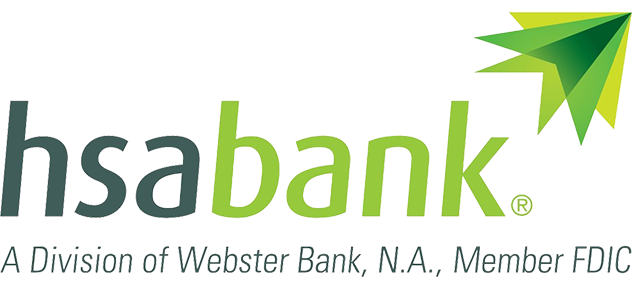Health Savings Account
A Health Savings Account (HSA) is a tax-favored account used in conjunction with an HSA-compatible health plan, typically a high deductible one. The HSA allows you to contribute funds on a pre-tax or tax-deductible basis, which one may use to pay for eligible medical expenses. These accounts are a way to lower your medical premiums by electing a higher deductible, and then establish the tax deductible HSA account to cover most medical expenses that occur under the deductible selected. In most situations, the savings on the higher deductible health plans will fund the HSA contributions. An eligible medical expense is an expense that pays for healthcare services, equipment or medications as described in IRS Publication 502.
In general, your HSA can be used for:
- Expenses applied to your health plan deductible
- Dental care services-even if you do not have a dental plan
- Vision care services-even if you do not have a vision plan
- Prescription services
- Over-the-counter medications prescribed by your doctor
- Certain medical equipment
Funds used to pay for qualified medical expenses are always tax-free, regardless of age or HSA-compatible health plan coverage.
Prior to age 65, funds used to pay for non-eligible medical expenses are subject to normal income tax and a 20% penalty. After age 65, HSA funds may be withdrawn for non-eligible expenses with no penalty (regular income tax will apply).
HSA funds can be used to reimburse yourself for past medical expenses if the expense was incurred after your HSA was established.
If you have questions regarding the eligibility of medical expenses, always contact a qualified tax advisor or the IRS.
Due to healthcare reform, additional HSA changes are on the way. We will keep you notified on this website. If you have questions, please contact us at (858) 874-5516.
|
2018 IRS Limits |
||
|
|
Single Plan |
Family Plan |
|
Maximum Contribution Limit |
$3,450 |
$6,900 |
|
Minimum Deductible |
$1,350 |
$2,700 |
|
Maximum Out-of-pocket |
$6,650 |
$13,300 |
|
Catch-up Contribution (55+) |
$1,000 |
$1,000 |
HSA-compatible Health Plans
The IRS sets annual requirements for the minimum deductible and maximum out-of-pocket expense for HSA-compatible health plans. You would need to verify that your health plan is compatible.
Catch-up Contributions
Individuals age 55 and over can make catch-up contributions directly through Internet Banking or by mailing a personal check.
Excess Contribution Removal
If you exceed the maximum contribution amount for a given year, you can remove the excess funds by your tax filing deadline, typically April 15, without tax penalty.
If excess funds are not removed by your tax filing deadline, you may be subject to tax penalties and/or IRS fees.
Rollover Funds to Your HSA
You may be eligible for a one-time rollover from your FSA or HRA as long as you meet the conditions and eligibility requirements. Per IRS Notice 2007-22, you must:
- Have had an FSA or HRA on September 21, 2006;
- Roll over the lesser of the balance in the FSA or HRA on September 21, 2006 or as of the date of the distribution; and
- Bring the FSA or HRA balance to zero.
A one-time rollover from an IRA is allowed up to the annual IRS maximum amounts. Contact your tax advisor to discuss the benefits and tax reporting requirements.

